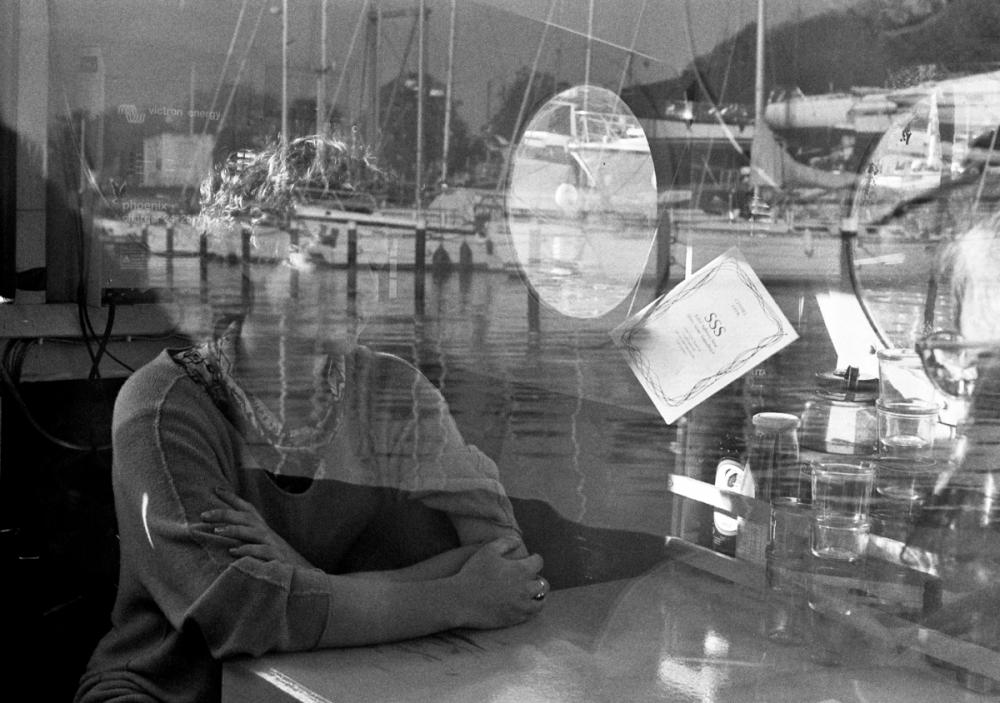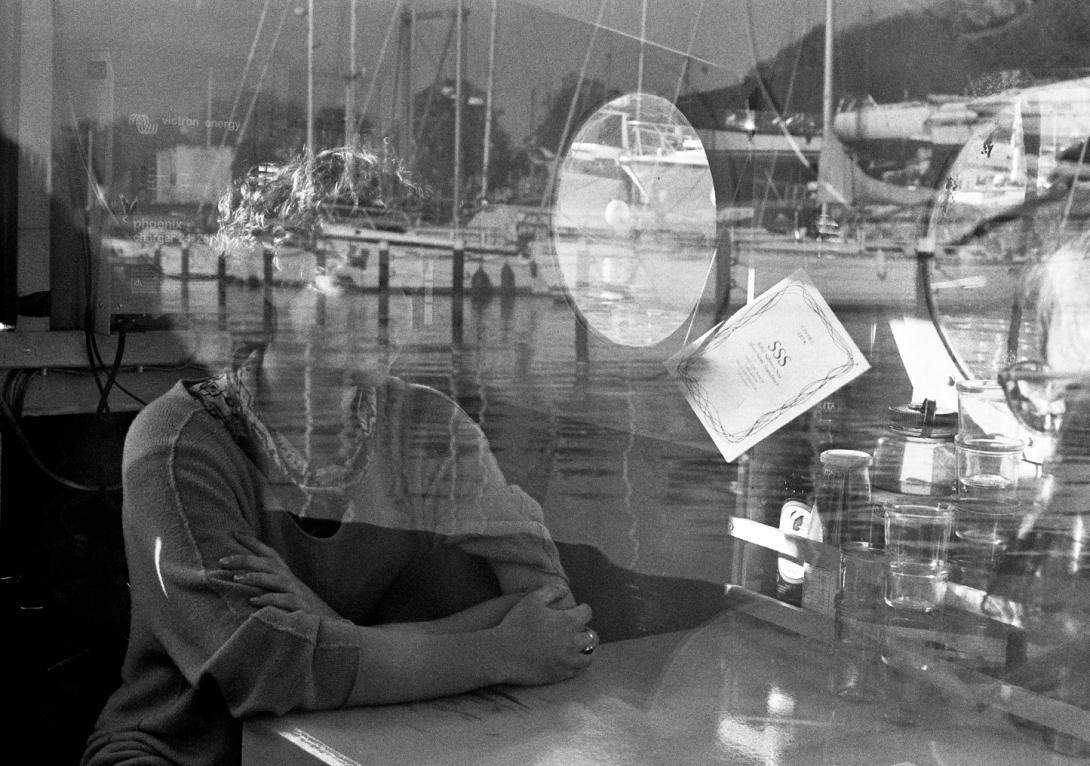SONGING WITH OUR ANCESTORS: HYDROFEMINISMS
Marialena Marouda, The Oceanographies Institute, Alexis Pauline Gumbs & Daniela Bershan
More-Than-Human Encounters | Hydrofeminisms from Kaaitheater on Vimeo.
This last session in our Series of More-than-Human Encounters is entirely devoted to oceanic storytelling in kinship with hydrofeminism
The ocean holds numerous stories of kinship between the human and the more-than-human. One of those stories tells of the ancient oceanic ancestors of our present-day (human) bodies of water. Traces of many of those ancestors, such as the amoeba or the jellyfish, are still present in the human body.
This last session in our Series of More-Than-Human Encounters was entirely devoted to oceanic storytelling in kinship with hydrofeminism. This form of feminism is particularly sensitive towards watery creatures and our solidarity with them. It is also inspired by music and song-making practice – songings –, believing them to be a means of interspecies community creation and resistance. We therefore propose joining with these ancestors in practices of writing, songing and storytelling. It considers listening to them as essential for finding – and healing – our more-than-human voice(s) in times of rising waters.
With Marialena Marouda and The Oceanographies Institute (TOI), Charlie Usher, queer Black feminist poet and scholar Alexis Pauline Gumbs and the writer, radio dj and educator Peggy Pierrot.
Welcome by Goedele Nuyttens (Crosstalks)
Marialena Marouda & Charlie Usher: Songing with the Oceanographies Institute
Lecture by Alexis Pauline Gumbs (on Zoom)
Conversation with Alexis Pauline Gumbs and Daniela Bershan
Q&A with the public
• Marialena Marouda (b. 1982, Athens) works in the intersections between performance, sound art and oral poetry. She studied philosophy and visual arts at Columbia University in New York, USA and continued her studies ath the Institute for Applied Theatre Studies at the university of Giessen, Germany. In May 2018 she initiated The Oceanographies Institute (TOI), as part of her research at the Advanced Performance and Scenography Studies Program (a.pass) in Brussels.
TOI focuses essentially on the relation between two bodies of water: the human body and the world ocean(s). It gives particular attention to affectual and sensual encounters between the two bodies. The Institute therefore explores the relations of hands to mud, ears to the breaking waves, feet to the feeling of sinking, rather than the ocean “in itself”, as if devoid of the human presence. It collects, analyzes and reenacts people's personal stories about their encounters with the ocean. In 2019, composer Charlie Usher and performance maker Elpida Orfanidou joined TOI, letting their practices of song-making and voicing flow into the institute‘s work.
• Charlie Usher (BE/UK) is a composer living in Brussels, working with heart-on-sleeve cultural samples, rotary and handmade speaker installations, live instruments, and horizontal time structures. His works have been performed and installed at Beursschouwburg Brussels, Lincoln Center NYC, South Bank Centre London, Oscillation/Q-02 Brussels, MaerzMusik/Haus der Berliner Festspiele, ImPulsTanz/Burgtheater im Kasino Vienna, International Film Festival Rotterdam, Galerie DuflonRacz Brussels, STUK Leuven, and toured multiple times in the US and UK with multiple BBC radio broadcasts. With Marialena Marouda and Elpida Orfanidou he is a participant of The Oceanographies Institute, a research body working on human-ocean relationships.
• Alexis Pauline Gumbs’ hybrid writing practice draws from both poetry and Black feminist theory and theorists. The ocean is central in her work as a site of both trauma and healing. Addressing the horror of the Middle Passage and how it has marked herself and her human ancestors, she turns to Dub music for inspiration and resistance. Her writing becomes a medium for listening – and for rhythm creation – enabling her to dialog with her ancestors, both human and oceanic. She therefore strives towards an identification with marine mammals that goes beyond scientific naming (of their species, or genus) and towards a becoming whale, or dolphin or seal. After all, marine mammals know how to survive underwater, how to collaborate and how to (un)learn in ways that should inspire human societies and equip them for a liquid future.
• Daniela Bershan a.k.a. Baba Electronica is an artist, DJ and independent researcher working with relational structures and the politics of intimacy. Through her work – ranging from sculpture and performance to community infrastructures and sound – she proposes practices of collective intimacy and care as a way to study and honor affective and relational structures; Her current work is exploring the ecological, historical, emotional and political dimensions of reproductive labour and its re-organization through different registers. She composes and holds potentia-spaces for erotic/aesthetic practices and non-monotonic thinking. www.soundcloud.com/baba-electronica


